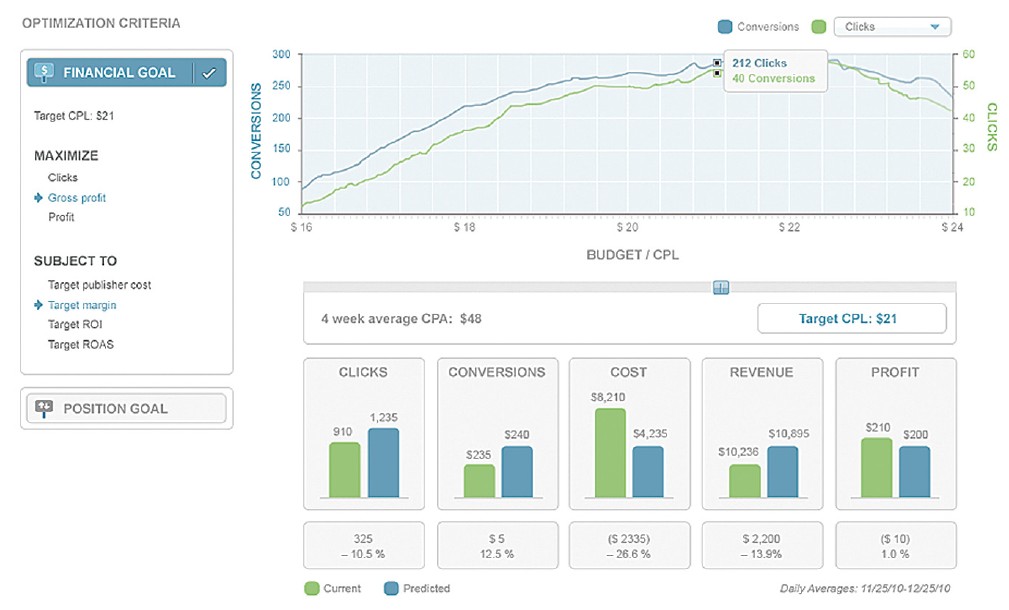5 Secrets To Maximizing Retail Budgets For Paid Search
Over the last decade, the incorporation of search into the online shopping experience has led to a savvier generation of consumers who prefer the selection, price-transparency, and convenience of online retail to traditional brick-and-mortars. As a result, online retailers are now spending more on paid search advertising than just about any other industry. In fact, […]

Image via shutterstock
Over the last decade, the incorporation of search into the online shopping experience has led to a savvier generation of consumers who prefer the selection, price-transparency, and convenience of online retail to traditional brick-and-mortars.
As a result, online retailers are now spending more on paid search advertising than just about any other industry. In fact, in 2011, retailers accounted for more than $3 billion of Google’s revenue, just second to the finance and insurance industry — and that number is only growing larger.
There’s a good reason why Google makes so much revenue from retailers — paid search has proven to be highly effective for them, delivering a consistently profitable return on investment (ROI).
However, the success of paid search has created a “gold rush” mentality among online retailers. The constant struggle to gain the increasingly divided attention of consumers has shaped a highly competitive battlefield where technological inefficiencies and the inability to execute on paid search strategies results in higher costs, lower margins, and missed revenue opportunities.
Maximizing Revenue Across Paid Search Campaigns
As competition increases, savvy online retailers must understand the importance of efficient budget allocation. With more discretionary spend being appropriated toward paid search each year, retailers that efficiently allocate these budgets will be positioned to maximize revenue across their paid search campaigns. To do this, the following challenges must be addressed.
- Complexity and number of available analytics systems: this, coupled with the nuances in how publishers track and report clicks and cost, creates a disconnect when calculating ROI.
- Account structure: this in itself — frequently organized to maximize keyword and creative relevance rather than logical product lines or geographic regions — creates a fragmented view into costs and revenue, making budgets more difficult to manage.
- Irrelevant searches, poor performing keywords and ineffective creative: these things lead to unwanted and unprofitable clicks that further erode budget performance.
- Marketers’ attempts to manually adjust individual bids: these are time-consuming and prone to errors.
Effectively Allocating Paid Search Budgets
Successful online retailers can combat the above challenges and manage to efficiently allocate budgets by executing on the following five paid search requirements:
- Deploy a flexible revenue integration: successfully pairing cost and revenue data for efficient budget allocation requires a flexible solution that leverages existing infrastructure. This not only preserves historical data, but also maintains a single point of truth. Proven integrations with the leading analytics, ad serving, call tracking, and CRM systems enable retailers to create a complete view of paid search ROI.
-
Segment performance by business need: the ability to “tag” keywords and other campaign elements with product line, geography, or other business dimensions is critical to measuring ROI and allocating budgets by business need. Segmenting and analyzing paid search performance across these dimensions provides search marketers with insight into paid search ROI, unconstrained by account structure. Scaling this process using bulk capabilities allows retailers to compare performance across these segments and quickly align budgets with business needs.
- Manage by exception to reduce wasted budget: seasonality and other changes in the bidding landscape often lead to fluctuations in paid search performance. Filtering large datasets and setting alerts to manage large-scale campaigns by exception enable search marketers to make smarter decisions faster when changes in performance occur. Deploying negative keywords, addressing unprofitable keywords, and optimizing under-performing creative all reduce wasted budget and provide retailers with a more meaningful ROI.
-
Calculate optimal bids with portfolio optimization: maximizing revenue across a set budget requires making spend trade-offs between keywords within a portfolio. Calculating optimal bids for all keywords simultaneously enables search marketers to maximize revenue across their campaigns while taking into consideration revenue goals that vary by campaign, product line, or other business needs. This approach to bidding requires an automated solution that also has the flexibility to capitalize on new keyword opportunities without an expensive “learning” period.
- Forecast performance based on revenue goals: as revenue goals change for retailers, so do their paid search goals and campaign budgets. Understanding the shifts between volume, cost, and revenue associated with these variable bidding scenarios requires “what-if” analysis, coupling expected auction environments with historical revenue performance. Search marketers that can build these forecast models to anticipate changes in performance are in a position to hit their paid search targets based on adjusted revenue goals and projected budgets.
Driving Online Retail Growth
The integration of search into the online shopping habits of consumers represents a growing revenue opportunity for online retailers. Search marketers must overcome the challenges of efficient budget allocation, as well as other critical retail strategies, across an evolving digital battlefield. Understanding these requirements and how to satisfy them at scale puts advertisers in a position to drive more media and acquire more revenue within online retail.
Contributing authors are invited to create content for Search Engine Land and are chosen for their expertise and contribution to the search community. Our contributors work under the oversight of the editorial staff and contributions are checked for quality and relevance to our readers. The opinions they express are their own.
Related stories
New on Search Engine Land

